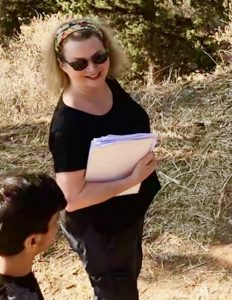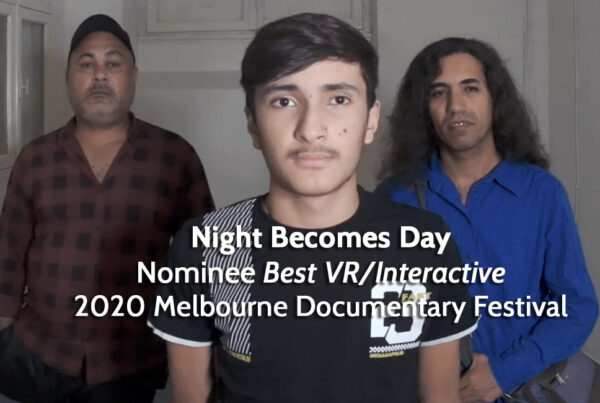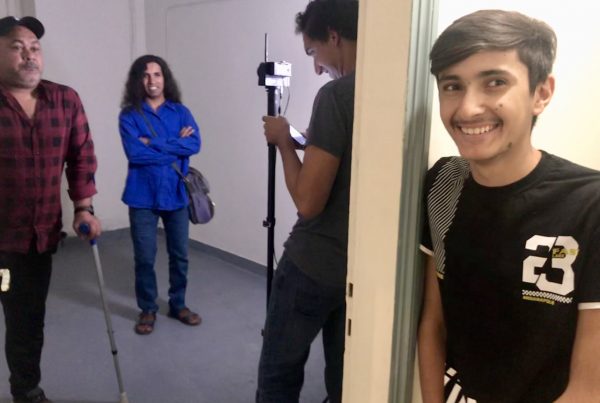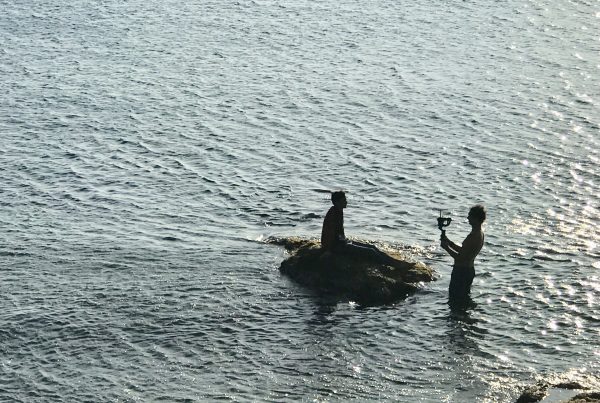Reflections on finding home amidst all forms of displacement, writes Producer Judith Hewitson.
 As noted by many expatriates, moving between countries for whatever purpose, means you are both a guest and at home as you engage anew with the local culture. However, this is also so for those who remain in one location. In life we are both guest and at home regardless of where we are located and our connection to any one place.
As noted by many expatriates, moving between countries for whatever purpose, means you are both a guest and at home as you engage anew with the local culture. However, this is also so for those who remain in one location. In life we are both guest and at home regardless of where we are located and our connection to any one place.
Life is a continuous movement through stasis and change – through being home and displaced. Remaining in one location is not the deciding factor in this process. We are in some way, always being forced to be displaced.
From childhood to teenage to adulthood, all different stages which we leave behind and move through to engage and live with a different world view – a new connection with the world and others, and sense of home. Fundamentally, what it means to belong is experienced differently in each stage.
And so we become displaced moving from one stage of being to into a new. On each step of the way mourning the loss of the old and acculturating to the new.
Historically, as Night Becomes Day Associate Producer and Occupational Therapist, Theo Bogeas, says, people movement has been continual throughout time. Displacement is occurring as part of our living in this world at any point in time.
Although we have now reached the highest number of displaced people with over 74 million. Even in 1947 when the British divided British India into two independent dominion states of India and Pakistan, displaced 14 million persons with 200,000 to 2 million deaths. This is not small.
As we all experience displacement in our everyday and global life, why then is there fear of those who are forced to be displaced?
Or simply put, those who move into our current home in which we too are a guest? Why border them out when we all are both simultaneously outsiders and insiders all through our life?
In this reflection I am not engaging with factors of poverty, trauma and health that are dimensions associated with displacement, as these factors are not unique to this experience. And before considering these factors as outcomes of people becoming vulnerable through displacement, we need to accept the universality of displacement in the human condition.
To remove the bias, the prejudice and held assumptions about being displaced, and hence of being a refugee or asylum seeker. To really comprehend that displacement is a normal part of being human and living in this world.
We need to move our thinking contrary to the current trend in which borders are increasingly going up – around countries, states, regions, cities and suburbs – as more and more are required for maintaining global health. It is difficult to simultaneously think and act on two ends of the spectrum – lock down and open up.
Using technology can help us live with this contradiction whilst not denying the positivity of this.
AI and VR are a means to crash through the borders. Through borders of perceived differences, through experiencing displacement as being an issue based on ‘them and us’ or the foreign.
VR is a means to reconnect us to our own human experience of living with displacement whilst also feeling at home, of belonging. It does this through helping us recognise our own process in the ‘other’ – in those who we are gazing on.
This technology puts us all on and in the same page emotionally and intellectually. VR interacts with the brain in a way that removes barriers to accepting information we do not normally agree with or want to know.
The result is VR reduces intellectual barriers and increases empathy with the other, the foreign. It enables us to recognise ourselves and our living experience in others.
In VR we feel immersed and in the presence of. We are being present without borders and barriers. It is similar to what one experiences when physically present in the real situation. Through either means we learn that being present is key.
When we are present, just as when we are personally living all the stages of our lives, we experience being both at home and a guest – both belonging as well as adjusting to the new and foreign. And all this displacement with the changing concepts of home, life and purpose, is natural, normal and life-giving.
From this position, we can move forward on a separate journey to look at issues of poverty, meaningful work, mental and physical health, national and cultural integration etc and explore how these integrate with displacement irrespective of whether the displacement occurs due to external or internal life events.




